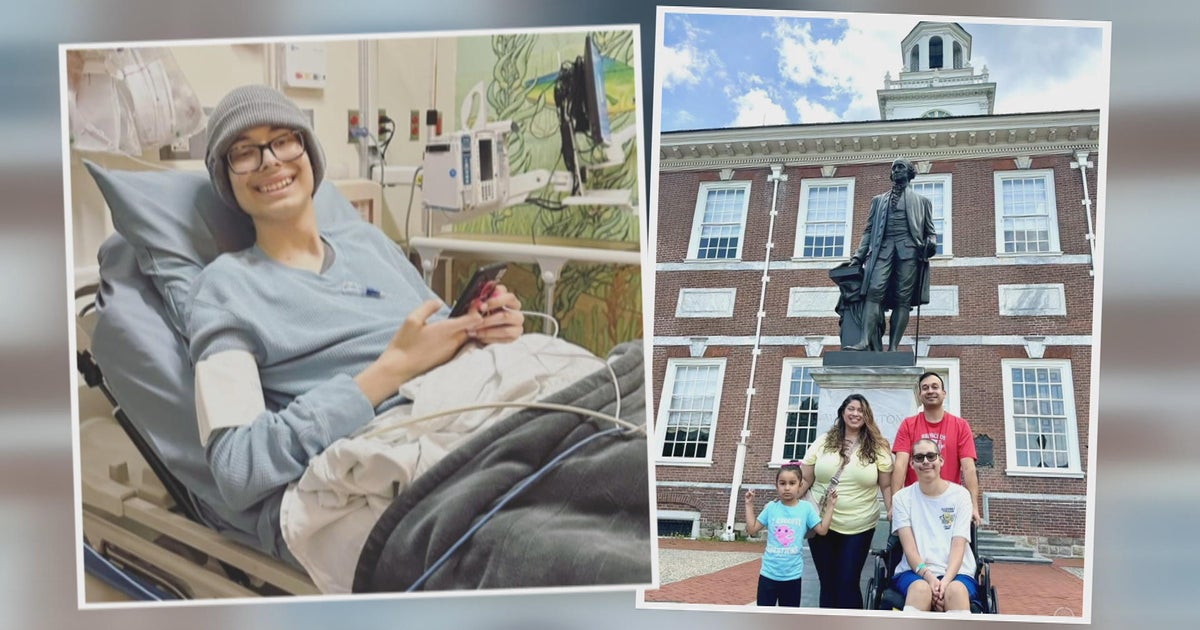Family Shares Toddler's Struggle With Standing, Walking During Cancer Treatments
PHILADELPHIA (CBS) -- For children with cancer, the disease often comes with other health problems. One little boy lost his ability to stand and talk not once, but twice.
Spend a few minutes with Andy Fee and you'll see he's a bundle of energy.
"He was always this smiley, happy ray of sunshine," Rian, Anderson's mother, said.
But in June of 2020, when he was only 9 months old, doctors noticed a lump on his abdomen. An ultrasound revealed a large mass, it was neuroblastoma.
"You never think that you're going to be those parents. You think that it's not going to happen to your son or daughter and then when it does there is a whirlwind of emotions and you don't know what's next," Mike Fee, Anderson's dad, said.
Andy underwent surgery to remove the tumor and was recovering well, but within weeks, his parents noticed something odd.
"His eyes would move back and forth, he would shake," Mike said.
That's when they received a second diagnosis.
"Opsoclonus-myoclonus-ataxis syndrome," Mike said.
OMAS for short. It's a rare neurological disorder that can be triggered by a viral infection or tumor.
"He was about to walk, he was standing, he was talking and he lost everything in a matter of two days, everything disappeared, it was that fast," Rian said. "To have your 1-year-old all of a sudden regress and to turn back to this newborn stage."
He began infusions and steroids for the condition but then his tumor grew back larger than before.
He started chemotherapy and with physical and occupational therapy was walking on his own.
He relapsed and the OMAS took his ability to walk once more, but in June, he finished chemotherapy with his end-of-treatment scans showing his tumor shrunk significantly.
"We've been very, very lucky with the outcome, but there were very hard times," Rian said.
Now, he's just a few months shy of his 3rd birthday.
"You really wouldn't be able to tell that anything was ever wrong with him and that's amazing and it's a tribute to all the research and doctors we've worked with over the past two years," Mike said.



